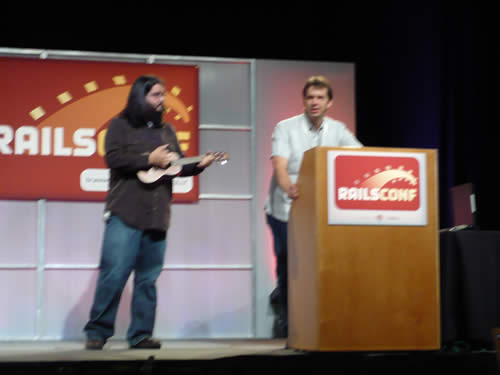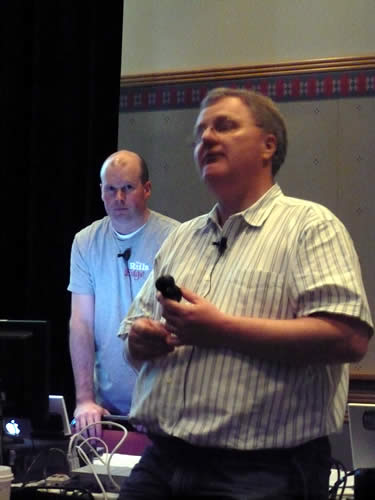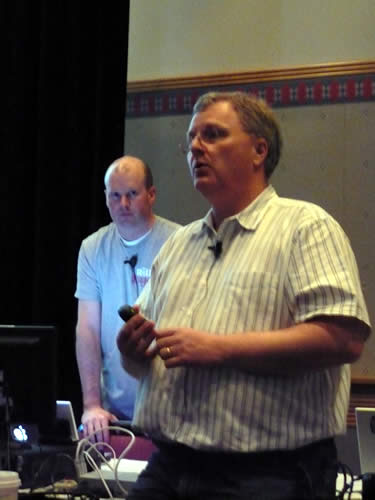
“There are 1600 people attending this conference today,” said RailsConf creator Chad Fowler in the opening keynote, “Do try to meet them all.”
Things have changed since last year’s RailsConf. Where we had 400 people packed into an overly air-conditioned ballroom at an airport hotel in the Chicago ‘burbs, this time, we’ve got four times as many nerds packed into the Oregon Convention Center in Portland.
When Rails creator David Heinemeier Hansson asked the audience “How many of you are paid to work on Ruby on Rails?”, about half the keynote audience raised their hands.






